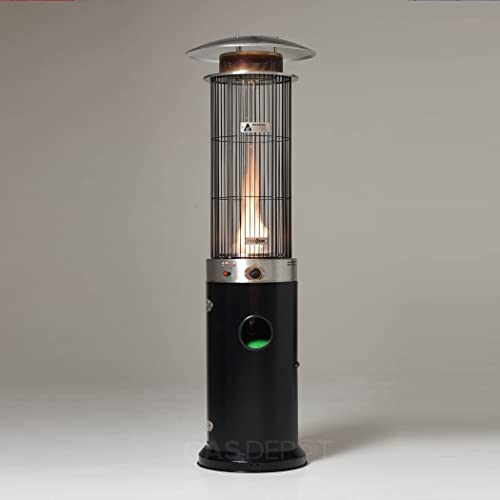Understanding Heating Equipment: Types, Applications, and Considerations
Heating equipment plays a vital role in maintaining comfy living and working environments. Whether in domestic or commercial settings, efficient heater are essential for health, comfort, and productivity. This article explores numerous kinds of heating equipment, their applications, and crucial factors to consider for picking the best heating system for specific needs.
Kinds Of Heating Equipment
Heating equipment can be broadly categorized into various classifications based upon fuel type, heating technique, and application. Below are the most typical types:
| Type of Heating Equipment | Description | Typical Applications |
|---|---|---|
| Heating systems | A combustion heater that heats up air and distributes it by means of ducts. | Residential homes, commercial structures. |
| Boilers | Warms water to produce steam or warm water for heating space or offering warm water. | Radiant heat, industrial procedures. |
| Heat Pumps | Transfers heat from the air, ground, or water, using electricity to help with cooling and heating. | Residential homes, zoning systems. |
| Radiant Heaters | Heats objects directly without heating the air in between, often through electrical coils or warm water. | Homes, fitness centers, workshops. |
| Space Heaters | Portable heaters that offer direct heat to a small location. | Houses, garages, workshops. |
| Water Heaters | Heats up water for domestic usages, can be tankless or storage types. | Residential restrooms, kitchens. |
1. Furnaces
Furnaces are among the most common heating unit, particularly in cooler environments. They can be powered by numerous fuels, including gas, propane, oil, or electricity. This equipment runs by heating air and distributing it through ductwork.
Advantages of Furnaces:
- Efficient heating throughout large areas.
- Can be incorporated with a/c systems for year-round environment control.
2. Boilers
Boilers are considerable for heating water and producing steam for central heating systems. Unlike furnaces, which heat air, boilers distribute warm water or steam through pipelines to radiators or underfloor heating systems.
Benefits of Boilers:
- Provide even heat circulation and maintain humidity levels.
- Can use renewable energy sources, such as wood pellets or solar power.
3. Heat Pumps
Heat pumps, typically considered versatile, can effectively heat and cool areas. These systems work by extracting heat from outside sources (even in winter) and moving it inside.
Advantages of Heat Pumps:
- Energy efficient and can result in lower energy bills.
- Eco-friendly as they utilize eco-friendly energy.
4. Radiant Heaters
Radiant heating systems are created to heat things straight without warming the surrounding air. This approach is often more efficient, as it minimizes heat loss.
Benefits of Radiant Heaters:
- Offer focused heating for targeted locations.
- Improve comfort by preserving more constant temperature levels.
5. Space Heaters
Space heaters are portable systems that offer supplemental heat in localized locations. They can be electric, propane-fed, or kerosene-based.
Advantages of Space Heaters:
- Cost-effective for heating little areas.
- Flexibility to move as required for convenience.
6. Hot water heater
Hot water heater are essential for providing warm water for domestic use, consisting of bathing, cooking, and cleansing. They can be found in different types, including tankless, solar, and conventional tank-style heaters.
Advantages of Water Heaters:
- Essential for everyday health and household convenience.
- Energy-efficient options readily available.
Secret Considerations When Choosing Heating Equipment
Selecting the best heating equipment is crucial for effectiveness and convenience. Here are some crucial considerations to keep in mind:
- Energy Source: Assess the availability and cost of numerous fuel sources in your area. Gas tends to be more efficient, while electric systems may provide benefit.
- Size Requirements: Select a system sized appropriately for your space. Small systems may have a hard time to heat effectively, while large models can cause inefficient heating and higher energy bills.
- Energy Efficiency: Look for equipment with high energy effectiveness ratings. Devices with ENERGY STAR labels can assist with cost savings and environmental preservation.
- Installation and Maintenance Costs: Consider both upfront purchase costs and long-term maintenance expenses. Some systems may have greater initial expenses however lower functional costs.
- Environmental Impact: Evaluate options that decrease carbon emissions and minimize overall environmental footprints, such as solar hot water heater or heatpump.
Regularly Asked Questions (FAQs)
What is the most efficient kind of heating equipment?
The efficiency can differ, however heat pumps are normally considered highly efficient, particularly in milder environments. Buy Infrared Gas Heaters can provide significant energy cost savings compared to standard heating approaches.
How often should heating equipment be serviced?
Usually, it is suggested to service heating unit at least as soon as a year. Regular maintenance makes sure efficient operation, durability, and safety.
How can I improve the efficiency of my heating system?
- Routinely change or clean filters.
- Seal leakages in ducts and windows.
- Use programmable thermostats to manage temperature levels effectively.
Exist environmentally friendly heating options offered?
Yes, options such as solar water heaters, biomass boilers, and geothermal heat pumps offer eco-friendly heating solutions that use renewable resources.
What size heater do I require for my home?
The size will depend upon numerous elements, including the home's square footage, insulation quality, and regional climate. An HVAC professional can conduct a load calculation to determine suitable sizing.
Heating equipment is a critical aspect of building comfort and effectiveness. With different options readily available, comprehending the types and their applications is necessary for making informed choices. By thinking about energy sources, equipment sizing, efficiency, and environmental effects, property owners and companies can ensure their heating unit fulfill their needs effectively.
In conclusion, the very best heating option frequently involves balancing initial costs, functional performance, and ecological factors to consider-- ensuring a warm and comfy living environment for many years to come.

